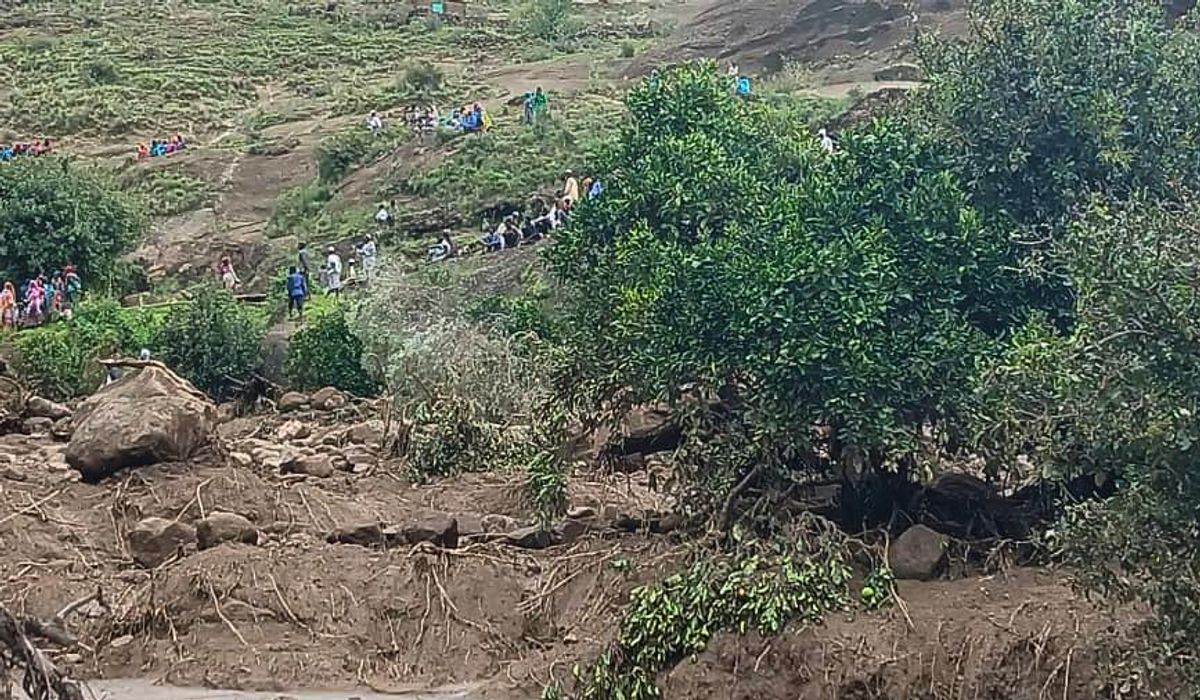


CAIRO — A devastating landslide that killed an estimated 1,000 people in Sudan’s Darfur region struck as the northeastern African nation reels from a civil war that pushed some of its parts into famine.
The nation of more than 50 million people has a long history of conflicts, including the one that created South Sudan in 2011. It’s also known for its seasonal flooding that kills hundreds of people every year. Climate change has made the rainfall and flooding more deadly and destructive in recent years.
After days of heavy rainfall, a landslide on Sunday wiped out the village of Tarasin in the Marrah Mountains area, more than 900 kilometers (560 miles) west of the capital, Khartoum.
At least 1,000 people were killed, and only one of the residents survived, according to the Sudan Liberation Movement-Army, a rebel group that controls the area.
The group’s spokesman Mohamed Abdel-Rahman al-Nair said search efforts were underway and that about 100 bodies were recovered as of Tuesday evening. The U.N. humanitarian coordinator in Sudan, Luca Renda, said “between 300-1,000 people may have lost their lives,” citing local sources.
Marrah Mountains, where the village is located, are hard to reach. The UNESCO World Heritage site is located in a volcanic area with a summit of 3,000 meters (9,840 feet).
The landslide happened in the peak of Sudan’s flooding season, which runs from July to October. Widespread damage have been reported in other areas in Sudan in recent weeks, including Sofia village in South Darfur province where 100 houses were destroyed also on Sunday, according to the International Organization for Migration.
Sudan plunged into chaos when simmering tensions between the military and the paramilitary Rapid Support Forces exploded into street fighting in April 2023 in the capital, Khartoum and elsewhere in the country. The war has turned into a regional proxy conflict in which each side is backed by foreign governments.
Darfur, which has suffered from decades of conflict and witnessed the first genocide in the 21st century, was among the worst hit areas in the ongoing war.
The front lines have shifted following the military’s capture of Khartoum and its sister city of Omdurman, in a major setback to the paramilitaries. Most of the fighting have occurred in Darfur and the south-central region of Kordofan.
The war was marked by atrocities including mass killings and rapes, which the International Criminal Court says it is investigating as potential war crimes and crimes against humanity, especially in Darfur.
The RSF was blamed for most of the atrocities, and the former Biden administration accused the militia of committing genocide. The military was also accused of violating international law. The RSF grew out of the notorious Janjaweed militias, which were accused of genocide in the 2000s Darfur conflict.
The war has killed tens of thousands of people and forced 14 million others to flee, including over 4 million who crossed into neighboring countries, some of which have suffered from conflicts or economic crises.
The war created the world’s largest humanitarian crisis. It made Sudan one of four areas where famine was detected in the last 15 years, along with South Sudan, Somalia and the Gaza Strip. The five famine-stricken areas are in Darfur and Kordofan, and other areas are expected to join the fold, according to the Integrated Food Security Phase Classification (IPC).
Many areas, including Marrah Mountains and other parts of Darfur and Kordofan, have been inaccessible due to clashes, blockade and looting.
At least 25 million — half the country’s population — have been facing acute hunger, including over 3.6 million children who are acutely malnourished, the U.N. says.
There have also been deadly disease outbreaks, including cholera, malaria and dengue in the past two years. An ongoing cholera outbreak in Darfur killed about 400 people and sickened over 9,000, according to a local aid group. A March outbreak in the White Nile province killed about 100 people and sickened over 2,700 others, according to the Health Ministry.
